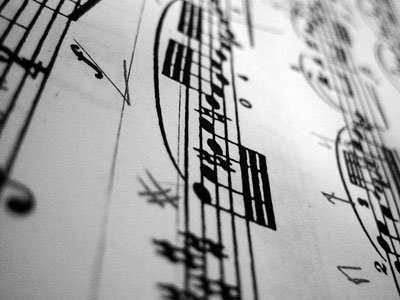All Nonfiction
- Bullying
- Books
- Academic
- Author Interviews
- Celebrity interviews
- College Articles
- College Essays
- Educator of the Year
- Heroes
- Interviews
- Memoir
- Personal Experience
- Sports
- Travel & Culture
All Opinions
- Bullying
- Current Events / Politics
- Discrimination
- Drugs / Alcohol / Smoking
- Entertainment / Celebrities
- Environment
- Love / Relationships
- Movies / Music / TV
- Pop Culture / Trends
- School / College
- Social Issues / Civics
- Spirituality / Religion
- Sports / Hobbies
All Hot Topics
- Bullying
- Community Service
- Environment
- Health
- Letters to the Editor
- Pride & Prejudice
- What Matters
- Back
Summer Guide
- Program Links
- Program Reviews
- Back
College Guide
- College Links
- College Reviews
- College Essays
- College Articles
- Back
Music Has A Soul
If you don’t play an instrument, you can’t understand what I’m talking about. You don’t feel the thrum of the wood or brass or plastic, you can’t feel the longing of your soul to play, you don’t feel the itch in your fingers or lips...you don’t have blisters on your thumbs, or chapped lips, or rosin dust coating your hair. But the best kind is when you’re in a full orchestra, with string instruments and band.
A few hours ago, I was sitting in a crowded concert hall, clutching my sweaty violin, slipping back every so often on the slick metal fold-up chair, and rubbing my aching blister on my right thumb. I was waiting for the conductor to raise his baton so we could begin the “Grand March” from the opera “Aida”. The concertmaster played her A, and so did the first clarinet, which happened to be a friend of mine, Hannah. We quietly waited while the woodwinds tuned first, then the brass and the harp, and then the lower strings, and finally the chin fiddles. I sometimes feel as if my violin, Meisel, has a soul. If he does, it was yearning to play by now, itching for me to press the horsehair bow against the tightly coiled strings. As the conductor raised his baton and fifty other fifth through twelfth graders raised their instruments to their shoulders, lips, chins, whichever, there was the silence...then the sound crashing down upon the waves of people, simultaneously with the white baton. The high, clear tantarra, tant-tant-tant-tant of the trumpets, then the slow and majestic hum of bass, cello, viola, and first and second violins, punctuated every so often by input from flutes and oboes and clarinets, with a steady backdrop thrum-bum-bum of percussion. It was more than music. It was a soul.
Some people don’t care for classical music. Sometimes I don’t, either. But when it’s something you’ve been practicing every night for half an hour to an hour for six weeks, you lose the feeling of boring and dull and what replaces it is something more, like an understanding of how complicated, rich, and broad a tale is woven with each note. Each note has to sound with a harmonious chord with up to twenty other instruments in different keys and ways of playing. Each note has to have a certain rhythm to it that matches other rhythms being played by completely different instrument families. In short, each small note, lasting no less than a breath of a second, has to be perfectly coordinated with each other one being played by fifty plus other people. Music has a soul...and musicians live it.

Similar Articles
JOIN THE DISCUSSION
This article has 1 comment.
